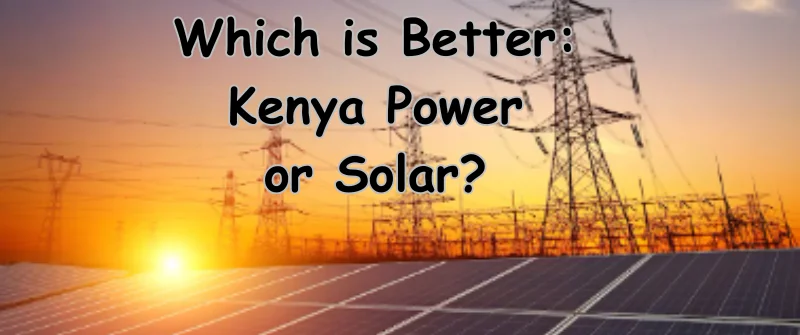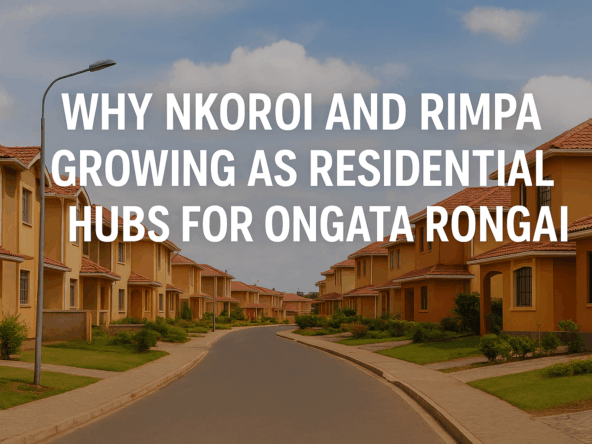The cost of power in Kenya today is high and has been on the rise for a while. This necessitates homeowners to explore cheaper and more reliable power options.
However, in the current economic environment, we only have a few options. We have two; the monopolistic Kenya Power and well, the free Solar energy.
Therefore, when building or buying a home in Kenya, one of the main decisions you will make is how to power it.
With the rising costs of electricity and growing awareness of environmental sustainability, many homeowners are torn between two options: connecting to the Kenya Power grid or installing solar power.
Both options have their advantages and disadvantages, and the best choice depends on various factors such as budget, location, and energy needs.
In this article, we will explore the pros and cons of using both Kenya Power grid electricity and solar power to help you decide which is the best choice for powering your home.
In this article, we will explore the pros and cons of using both Kenya Power grid electricity and solar power with a view of helping you decide which is the best choice to power your home.
Understanding Kenya Power Grid Electricity

Kenya Power, the main electricity provider in Kenya, supplies homes with grid electricity sourced mainly from hydroelectric, geothermal, wind, and a small percentage of fossil fuels.
Most urban and suburban areas in Kenya are already connected to the grid, making it the more common and established option for powering homes.
Pros of Using Kenya Power Grid Electricity
1. Stable and Reliable Energy Supply
When connected to the Kenya Power grid, you can expect a relatively steady supply of electricity, especially in urban areas.
With the government’s investment in geothermal and hydroelectric power, Kenya Power has diversified its energy sources to minimize supply disruptions.
2. Little to No Upfront Costs
The initial cost of connecting your home to the Kenya Power grid is relatively low compared to installing a solar power system.
Once your home is linked to the national grid, you simply pay monthly bills based on your electricity usage, with no need for additional hardware like solar panels or inverters.
3. Accessible for Urban and Suburban Homes
The Kenya Power grid is widespread in cities and towns, making it convenient for homeowners to get connected.
In many urban areas, you can get electricity almost immediately after applying for a connection, and maintenance or repairs are typically handled by the utility provider.
4. Continuous Power Supply
Unlike solar power, which depends on the sun and may experience inconsistencies on cloudy days or at night, grid electricity is available 24/7, providing a more continuous energy supply.
Cons of Using Kenya Power Grid Electricity
1. Rising Electricity Costs
Electricity prices in Kenya have been steadily rising in recent years due to factors such as increased demand, fluctuating fuel prices, and maintenance costs.
Monthly electricity bills can be a financial burden for many households, especially when there’s heavy energy consumption.
2. Power Outages
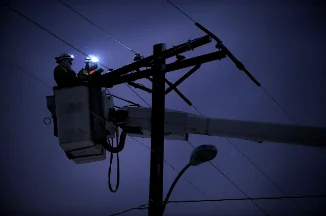
Kenya Power is known to experience occasional power outages, especially in rural or remote areas where infrastructure is not as developed.
These blackouts can disrupt your daily activities and, in extreme cases, cause damage to electrical appliances.
3. Environmental Impact
While Kenya has made significant strides in incorporating renewable energy sources like geothermal, the national grid still relies on fossil fuels to some extent.
This contributes to carbon emissions, and by using grid electricity, homeowners indirectly contribute to the depletion of natural resources.
The Rise of Solar Power in Kenya
Solar energy has gained popularity in Kenya over the last few years due to decreasing costs, environmental concerns, and advancements in solar technology.
Many homeowners are turning to solar power as an alternative or supplement to grid electricity, especially in areas where the grid connection is unreliable or expensive.
Advantages of Using Solar Power
1. Lower Long-Term Costs
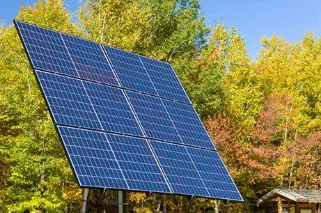
Although the initial installation of a solar power system can be expensive, the long-term financial benefits are significant.
After installation, solar power is essentially free—sunlight is an abundant resource, and you don’t have to worry about monthly bills for electricity usage.
Over time, homeowners can recover their investment through savings on energy costs.
2. Renewable and Environmentally Friendly
Solar energy is a renewable resource that doesn’t emit harmful gases or pollutants, making it an eco-friendly choice.
By choosing solar power, you reduce your carbon footprint and contribute to environmental sustainability.
In a country like Kenya, where the sun shines almost all year round, solar is a very efficient source of energy.
3. Energy Independence
Solar power allows you to be energy independent, especially in areas where Kenya Power grid outages are frequent.
You won’t need to rely on external electricity sources, and with the right battery storage systems, you can store excess energy generated during the day for use at night or during cloudy periods.
4. Scalability
Solar power systems can be customized based on your energy needs. You can start with a small system and gradually scale it up as your electricity demands grow.
This flexibility is beneficial for homeowners who might not need full power capacity at the beginning but expect their energy needs to increase over time.
5. Solar Incentives and Government Support
The Kenyan government has been actively promoting the use of solar energy, offering tax incentives and rebates for homeowners and businesses that install solar power systems.
These policies help offset the upfront costs of solar installation, making it more accessible for the average homeowner.
Disadvantages of Using Solar Power
1. High Initial Setup Costs
The upfront costs for purchasing solar panels, inverters, and battery systems can be prohibitively high for some homeowners.
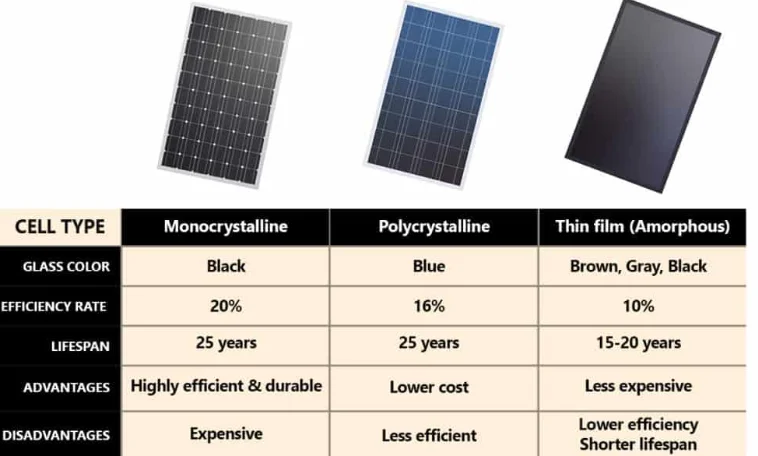
Even though solar power saves money in the long run, the initial investment may deter some from making the switch.
However, prices are decreasing as technology improves, and government incentives can help reduce the financial burden.
2. Weather Dependency
Solar power generation depends on the availability of sunlight, which can be inconsistent in certain regions or during rainy seasons.
While Kenya enjoys abundant sunshine most of the year, there can be times when solar panels don’t produce enough electricity to meet a household’s needs.
3. Requires Regular Maintenance
While solar power systems generally require less maintenance than traditional generators, they still need regular upkeep to function optimally.
Dust and debris can accumulate on the panels, reducing their efficiency, and battery systems need to be monitored and replaced over time.
4. Storage Limitations
While solar power generation is efficient during the day, energy storage can be a challenge.
Unless you invest in high-capacity batteries, you may run out of stored energy at night or during cloudy days.
Battery storage systems can be expensive, and their lifespan is usually shorter than the solar panels themselves, meaning you’ll have to replace them periodically.
Choosing between Kenya Power and Solar Power
Before making your decision, there are several factors you should consider:
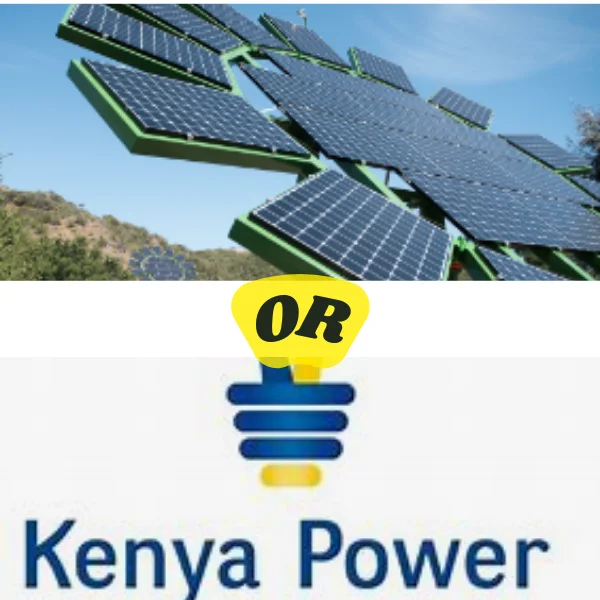
1. Cost
Evaluate both the initial setup and long-term costs. While grid electricity has a lower upfront cost, solar power offers significant savings over time.
2. Energy Needs
Assess your household’s energy requirements. If you consume large amounts of electricity, you may need a hybrid system that combines both solar and grid electricity.
3. Location
Solar power is more viable in areas with abundant sunlight, while grid electricity is more reliable in urban regions with stable infrastructure.
4. Environmental Impact
If reducing your carbon footprint is important, solar energy is the greener choice.
5. Future Plans
Consider whether you plan to expand your energy consumption over time. Solar systems can be scaled, while grid electricity offers continuous access without the need for upgrades.
A Conclusive Take on Why Both Are Good
The decision between Kenya Power grid electricity and solar power ultimately depends on your personal preferences, budget, and long-term goals.

If you prefer a reliable, low-upfront cost option and live in an urban area, grid electricity might be the better choice for you.
On the other hand, if you’re environmentally conscious, willing to invest in the long-term benefits, and want to reduce monthly energy bills, solar power is the way to go.
For many homeowners, a hybrid system that uses both grid electricity and solar energy is the most practical solution, allowing them to enjoy the benefits of both while mitigating the drawbacks.
Whichever option you choose, the energy landscape in Kenya is evolving, and both grid and solar solutions offer excellent opportunities for homeowners.
Using a Hybrid of Kenya Power and Solar
Using both Kenya Power and solar energy as complementary sources can offer a range of benefits to homeowners in Kenya. This hybrid approach combines the reliability of grid electricity with the cost-saving and environmentally friendly advantages of solar power.
Benefits of Using Kenya Power and Solar Together
Here are the key benefits of using both sources together:
1. Reduces the Reliance on the Grid
By using solar power alongside Kenya Power, homeowners can reduce their dependency on the national grid.
During the day, when solar panels generate electricity, you can run your home on solar energy, lessening the need to draw power from the grid.
This can be particularly useful in areas where power outages or instability are common, giving you energy security when the grid is down.
2. Lower Electricity Bills
Solar power can significantly reduce your monthly electricity bills. During the day, when solar power is most efficient, you can rely on it to power your home, cutting down on grid electricity consumption.
By supplementing your grid usage with solar, you can achieve substantial savings, especially during peak sunlight hours.
3. Backup Power During Outages
While Kenya Power offers a reliable source of electricity, outages can still occur. A hybrid system ensures that you can switch to solar power when the grid goes down, providing uninterrupted power.
By incorporating battery storage, you can store excess solar energy for use during the night or when there’s a power cut, making your home more resilient to outages.
4. Eco-Friendly Energy Solution

While Kenya Power incorporates some renewable energy sources like geothermal and hydropower, solar energy is entirely renewable and doesn’t contribute to greenhouse gas emissions.
By using both solar and grid electricity, you reduce your overall environmental impact, as you rely on clean, renewable energy whenever the sun is shining.
5. Maximized Efficiency
By leveraging both sources, you can optimize the energy supply for your home.
Solar power can handle your daytime needs, while grid electricity can provide a continuous supply at night or during cloudy weather when solar panels may not generate enough power.
This ensures you always have an efficient and reliable energy supply, regardless of weather conditions or grid status.
6. Flexibility in Power Usage
A hybrid setup offers flexibility in terms of energy management. This works well if you live in a suburb of Nairobi where it is hot and there is space. You can use both electricity and solar power.
You can prioritize solar energy for specific tasks, such as heating water or running appliances during the day while reserving grid power for heavier consumption periods or at night.
This flexibility allows you to adapt your energy usage based on your current needs and the availability of solar power.
7. Long-Term Savings
Though the initial cost of installing a solar power system can be high, using solar energy alongside grid power leads to long-term savings.
With solar reducing the amount of grid electricity you need, your overall energy expenses decrease.
Over time, the savings from reduced electricity bills can offset the initial investment in solar panels and equipment.
8. Supports Energy Expansion
As your energy needs grow, a hybrid system makes it easier to expand your energy options.
You can gradually add more solar panels or storage capacity to meet increasing demand, while still having the grid as a reliable backup.
This makes it easier to scale up your energy consumption without needing to rely solely on one source.
9. Government Incentives
The Kenyan government has been promoting solar energy by offering tax incentives and rebates for those installing solar power systems.
Using both Kenya Power and solar allows homeowners to take advantage of these incentives while maintaining grid connectivity for convenience and reliability.
10. Increased Property Value
Homes equipped with solar panels and a hybrid energy system are often seen as more attractive in the real estate market.
Prospective buyers appreciate the lower energy bills and energy independence that come with a hybrid system.
As a result, installing both Kenya Power and solar systems can increase your home’s value, making it more appealing if you decide to sell in the future.
Final Word
Using both Kenya Power and solar energy as complementary sources offers the best of both worlds.
You can enjoy the stability and reliability of the grid while benefiting from the cost savings, environmental sustainability, and energy independence that solar power provides.
A hybrid approach offers greater flexibility, resilience, and long-term financial savings, making it an ideal solution for many Kenyan homeowners.
